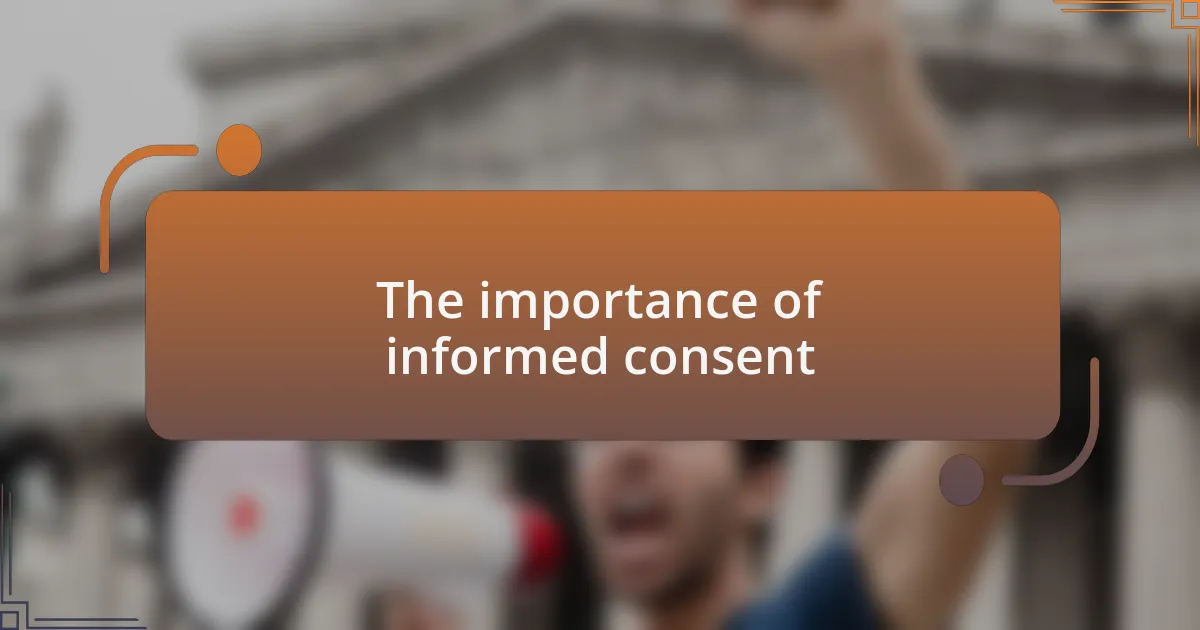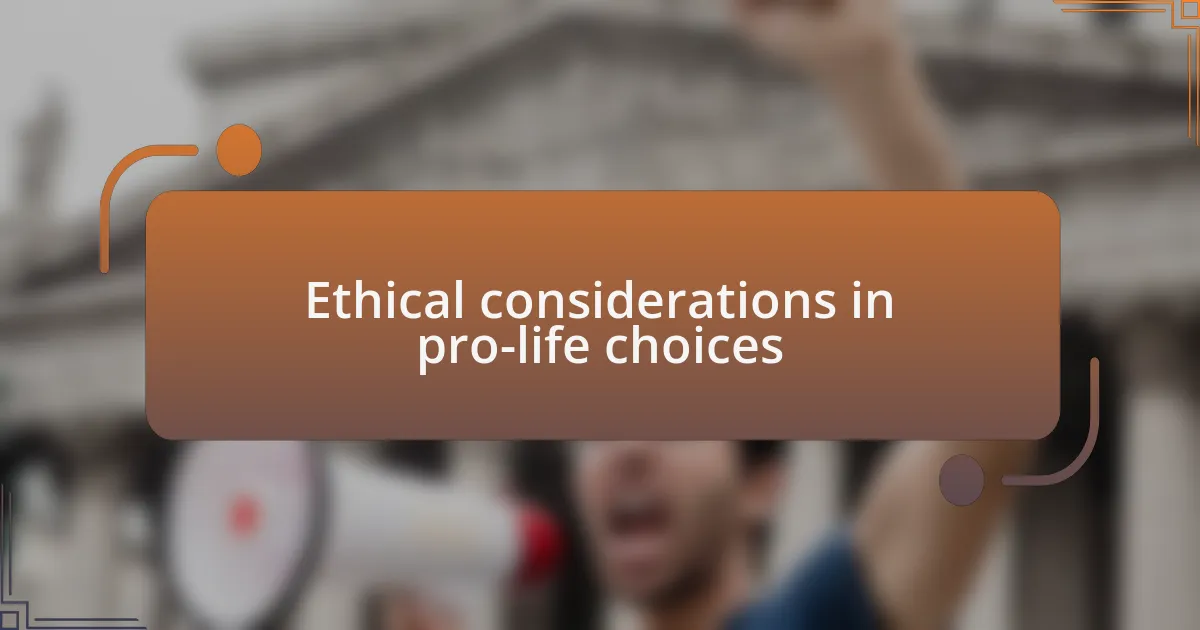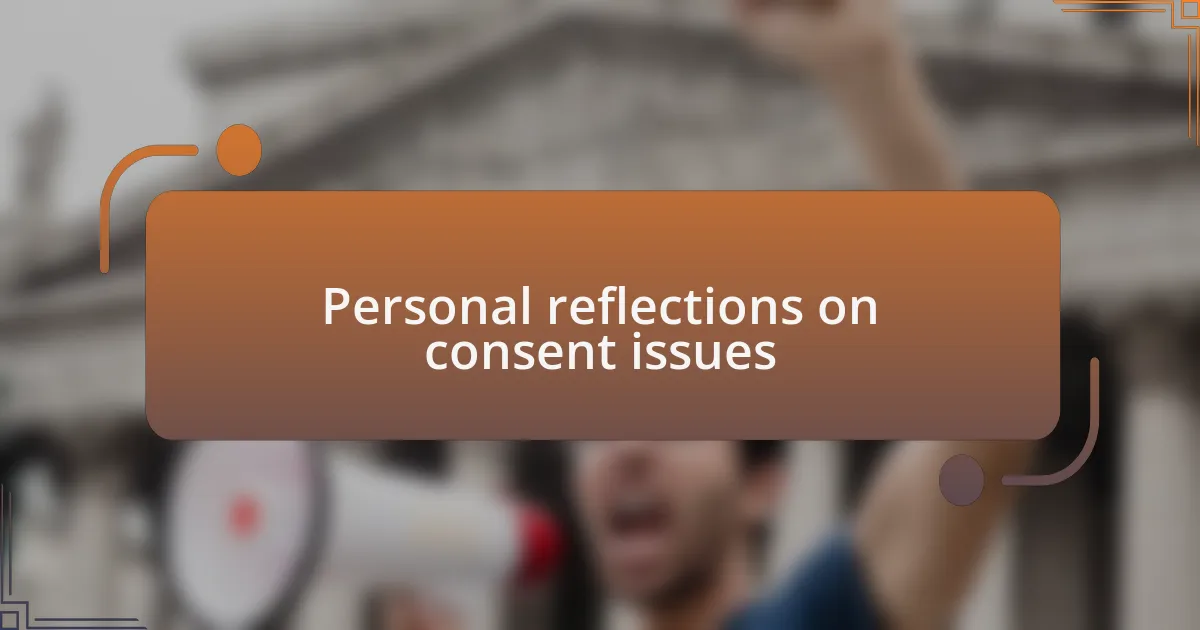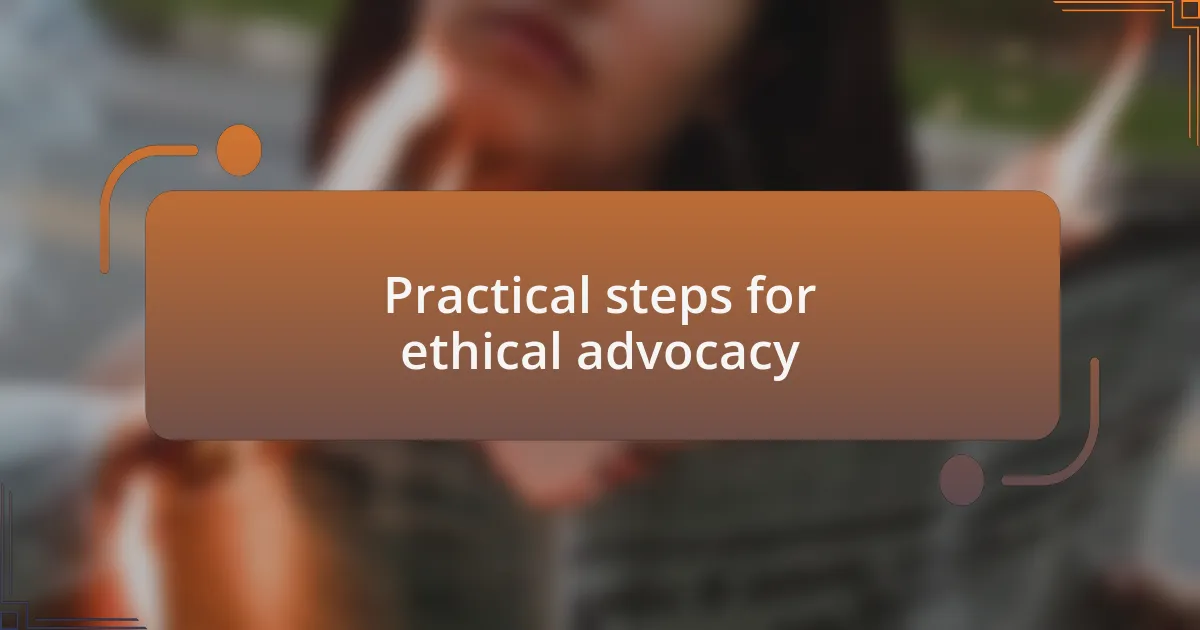Key takeaways:
- Informed consent is essential in healthcare, emphasizing the need for transparent communication and support to empower individuals in decision-making.
- Ethical considerations in pro-life choices involve balancing individual autonomy with societal pressures, highlighting the importance of community support.
- Authentic consent requires space for reflection, free from external pressures, fostering deeper understanding of personal desires and motivations.
- Effective advocacy involves active listening, comprehensive information sharing, and ongoing emotional support to nurture genuine connections and ethical engagement.

The importance of informed consent
Informed consent is a cornerstone of ethical practices in healthcare and advocacy. Reflecting on my experiences, I’ve witnessed how individuals often feel overwhelmed when faced with choices regarding their health and well-being. Don’t you think every person deserves the right to fully understand what they are consenting to? This clarity not only empowers individuals but also fosters trust in the healthcare system.
When I think about informed consent, I remember a close friend who hesitated to make a crucial medical decision. She felt pressured by external opinions and didn’t fully grasp the implications of her choices. It was only through detailed discussions and supportive conversations that she found her footing. This scenario emphasizes why transparent communication is vital—people should be encouraged to ask questions and voice concerns without fear of judgment.
A genuine informed consent process can transform daunting decisions into informed choices. I view this as a critical dialogue that validates a person’s feelings and circumstances. How can we enhance this process to ensure that everyone feels not only informed but also valued in their decision-making journey? The answer lies in compassionate communication and a commitment to ethical standards that prioritize the individual’s needs and values.

Ethical considerations in pro-life choices
Ethical considerations in pro-life choices require a deep understanding of the emotional and psychological impacts that such decisions carry. I remember a young woman I spoke with who faced an unplanned pregnancy; her internal conflict was palpable. She expressed confusion about the values surrounding her choice, prompting me to reflect on how societal pressures can cloud one’s authentic desires. How can we create an environment where individuals feel safe to explore their true feelings about parenthood without fear of judgment?
When we advocate for pro-life choices, we tread a delicate line between supporting life and respecting individual autonomy. I often ponder how essential it is to balance these principles. I recall a family member who felt torn between her beliefs and her circumstance. The struggle she faced illustrates that ethical considerations aren’t just black and white; they involve navigating personal circumstances while honoring deeply held values.
Moreover, the discussion of ethics goes beyond the individual; it should also encompass the community’s role in supporting these choices. In my view, it’s crucial for communities to provide emotional and practical support to those facing pro-life decisions. Have you ever thought about how a little understanding and help can transform a person’s experience? I’ve seen countless stories where community support made all the difference, forging connections that enriched not just individual lives but also the collective fabric of society.

Personal reflections on consent issues
In reflecting on consent issues, I can’t help but recall conversations with friends who faced the weighty decision of whether to continue a pregnancy. One friend shared her sense of being overwhelmed by expectations from family and society. It made me wonder, how often do we consider that the pressure to make a “right” choice can distort an individual’s ability to give true consent?
I’ve also seen situations where consent feels almost performative, where individuals are expected to express agreement but without space for genuine reflection. I remember a colleague hesitating to voice her fears and doubts because she worried it would be seen as weakness. This brings me to a critical question: what does authentic consent look like when external influences shout louder than inner voices?
Additionally, there’s the emotional complexity of consent that we often overlook. I think back to a client who, after much deliberation, expressed that she felt she was choosing for others rather than herself. It struck me that understanding one’s own desires is an integral part of true consent. Can we encourage deeper conversations that allow people to explore their feelings and motivations without the fear of being judged? I believe this is essential for fostering authentic consent in any ethical discussion.

Practical steps for ethical advocacy
When advocating for pro-life choices, it’s vital to foster an environment where individuals feel truly heard. I recall attending a workshop where we practiced active listening techniques, such as reflecting back what someone’s said before responding. This simple act seemed to create a space for deeper dialogue, allowing complex emotions to surface rather than just the surface-level agreement we often encounter. How can we replicate this kind of engagement in everyday conversations?
Another important step is to provide comprehensive information that empowers individuals to make informed decisions. I remember being involved in a community forum where experts shared resources about the emotional and physical aspects of pregnancy. Seeing attendees actively engage with this information was enlightening. It made me realize that clarity often dispels fear, leading to more fulfilling consent grounded in understanding.
Finally, I believe advocacy should emphasize the importance of ongoing support, rather than simply presenting a singular narrative. During a local support group, I shared my own experiences, and I noticed how that vulnerability encouraged others to do the same. Could it be that by humanizing our stories, we create a richer, more ethical framework for advocacy? Engaging in this shared journey promotes genuine connections and nurtures a collective sense of responsibility towards one another.